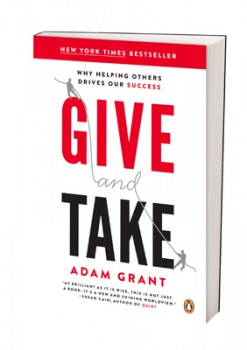 The Fuel of Life
The Fuel of Life
Without fuel your car doesn’t move. Without battery charge your smartphone is not that smart. And, without energy you’re not going to make a whole lot happen. It’s simple, it’s basic and it’s vital. We all need energy. So, how do you gain more energy?
The Usual Suggestions for More Energy
The usual, and super-useful, suggestions include:
- Sleep more – Eight hours is optimal for many people.
- Eat better – unhealthy food takes more energy to digest, so eat light.
- Coffee – The caffeine sparkplug is useful when taken occasionally, and the effect diminishes the more coffee you have. A daily addiction becomes a usual response rather than a heightened one.
- Exercise – Whilst in the short term physical activity can tire you out, in the medium term it sends a message to the body to produce more energy.
- People – If you’re an extrovert then hanging out with other people may give you energy and recharge your spirit. Alternatively, if you’re an introvert then a retreat into a book or some time alone might help.
There’s also another way that might surprise you…
[Tweet “How to Gain More Energy – the five usual suspects and one unexpected way”]
Repeat Until You Can’t
In Adam Grant’s eye-opening book Give and Take: A Revolutionary Approach to Success, he points to a century old study by psychologist Anitra Karsten (Page 168-9). She invited participants to work on a repetitive task for as long as they enjoyed it and when they became tired they were able to stop. The tasks were simple things like reading poetry out aloud or drawing pictures.
Harvard psychologist Ellen Langer retells the research… Participants would keep going until their hands were numb or their voices were hoarse. Physically they were spent. The researcher then asked them to do a similar and different task. For instance, the people drawing were asked to sign their name. And, the poetry readers were asked to talk about the task they had been set. In each case, the tired and worn-out participants were easily able to summon the energy to complete the new task.
Langer concludes: “…the change of context brought renewed energy.”
Change Your Context
This is one of the most powerful aspects of creating a manifesto: it creates a new context to operate from and therefore renewed energy. The old story about the motivational power of building a cathedral as compared to merely stacking bricks to build a wall is useful here. The context you decide to operate from is crucial. And, when you want a refresh, a recharge or a bolt of new energy, then reframing what you do might be highly useful too.
Reframing What You Do
Here are three ways you can reframe what you do to shift your context:
- Words: Is work an empowering idea for you or is it the drudgery you need to do to pay the bills this week? Would you be more excited to: Play? Learn? Apply your calling? Pursue your purpose? Or be in action?
- Physical: Given ‘sitting is the new smoking’, then consider changing how you do your work. For instance, stand up to make your phone calls or turn reading on the couch into listening to an audiobook as you walk in the sun.
- Location: Lately, I’ve become jaded working from home and the neighbour’s yapping dog doesn’t help. Instead, I walk down to the local library, head to a local coffice or visit a co-working space.
Action
- What are you going to do to boost your energy levels?
- How are you going to change the context of what you do?

 The Fuel of Life
The Fuel of Life

